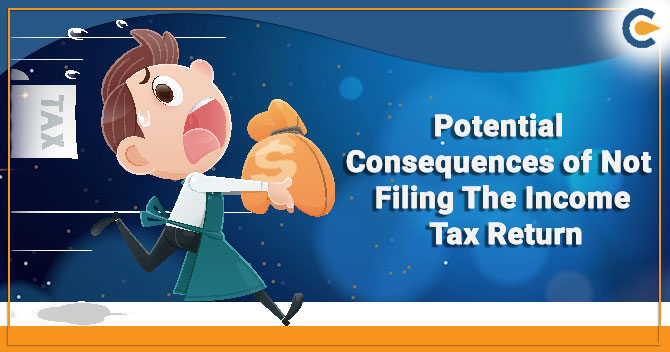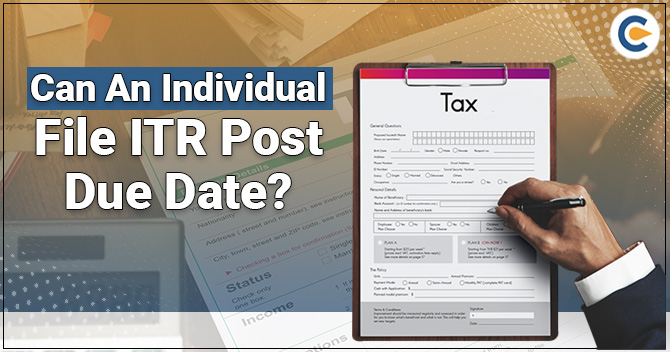The entire salaried class individual is liable to file ITR every year. The Indian government has put those outside the taxable regime who earn between Rs 2.5 lakh and 5 lakh. Other than, that has to file their ITR under the prescribed due date. A taxpayer can claim a refund for additional tax paid during the fiscal year by filing Income tax return.
March is a crucial month for the taxpayers as it is the last month of the fiscal year. Apart from staying in line with the Income tax-based deadlines, taxpayers must also address tax-saving exercises by March 31. Keep in mind that the said date is also the last date for linking PAN with Addhaar.
What are the Penalty Provisions under the Income Tax Act?
Given the Income-tax norms, an individual is liable to pay Rs 5,000 if a return is provided on or before December 31 of the assessment year. The penalty will rise to Rs 10,000 if the taxpayer files the return in the subsequent year between January 1 and March.
If the taxpayers do not file the income tax return, then they would dissolve their rights to carry forward the losses of the ongoing assessment year.
Viable Punishments for not Filing the Income Tax Return
A penalty can be levied on a person, a minimum of 50% of assessed tax maximum of 200% of the assessed tax. Furthermore, the assessee may confront prosecution, including rigorous imprisonment to seven years in extreme cases.
This may occur in a situation the willful default to provide income tax return & tax payable (after deducting taxes paid & TDS) surpasses Rs 10,000.
Read our article:Income Tax Returns: Which is the Correct ITR Form for you?
Penalty u/s 271F of Income Tax Act, 1961
If a taxpayer fails to submit the return before the end of the assessment year, the assessing officer may impose a penalty as follows:-
|
Date of Filing |
Fees Applicable (INR) |
|
If the return is submitted after the deadline of filing but on or before the 31st day of December. |
5000/- |
|
In any other case |
10,000/- |
|
Note: If the aggregate income of a taxpayer remain below the Rs 5,00,000, the fee payable under the said section would not surpasses Rs 1000/- |
|
Penalty for Non-Disclosure of Income
If you are isolating your Income from applicable taxes and skipping the requirement for filing the ITR, you may end up confronting the penalty levied by the IT department.
In such cases, the penalty under section 270A will be levied under such circumstances. Therefore, illegal procurement of taxable Income is highly vulnerable to a heavy penalty.
Best Judgment Assessment under section 144
The assessing officer is liable to carry an assessment to the best of his/her judgment in the given scenarios:-
- If the taxpayer skips the return filing required within the deadline as per the section 139(1) or a delayed return u/s 139(4) or a revised return u/s 139(5).
- If the taxpayers overlook the terms of the notice issued u/s 142(1) or fails to ensure conformity with the direction issued u/s 142(2A)
- If the taxpayer fails to ensure conformity with the terms of notice issued u/s 143(2).
Therefore, non-filing of ITR may lead to the best judgment assessment. This is referred to an assessment conducted as per the best judgment of the Assessing Officer based on accumulated documents that act as evidence.
Important Dates not to be Missed by the Taxpayers to Avert Penalties
The IT department has already rolled out the annual calendar of tax-based dates for the financial year 2021. Keeping these dates in mind is extremely important for the taxpayers to avert future consequences. The issued calendar entails all the important dates, such as the due date for filing ITR and the last date for paying the advance taxes.
Just like the preceding financial year, this year, too, the tax authority has sent emails to eligible taxpayers that comprise of a link to download its tax calendar.
We would like to draw your attention to the important Income tax-related dates
7 May 2021 –
It is last date for depositing Tax deducted/collected for April 2021. But, all sum collected/deducted by a government’s office will be paid to the central government’s credit on the day where tax is paid without an Income-tax Challan
15 May 2021 –
It is a due date for the issuance of TDS certificate against the tax deducted u/s 194-IA in the month of March, 2021.
15 May 2021 –
It is a due date for the issuance of TDS certificate against the tax deducted u/s 194M in the month of March, 2021.
15 May 2021
It is the Due date for furnishing of Form 24G by a government office where TCS/TDS for April 2021 has been paid in the absence of challan.
15 May 2021
Quarterly statement related to TCS deposited against the quarter ending March 31, 2021
15 May 2021 –
It is a Due date for providing statement in the Form no. 3BB by a stock exchange regarding transactions, in which codes of the client have been altered after registering for the month of April, 2021
30 May 2021 –
It is a due date for providing statement in Form No. 49C by foreign national having liaison office in India for FY 2020-21.
30 May 2021 –
It is a due date for providing challan-cum-statement regarding tax deducted u/s 194-IA in the month of April, 2021
Conclusion
Paying income tax returns on time provides endless benefits to the taxpayer. The legitimate taxpayer always gets the reward for filing the ITR within the deadline. Taxpayers[1] with seamless tax filing records are eligible to access the benefits like seamless visa processing, relaxation in government-based tenders, carrying forward the losses, and buying high life cover.
Read our article:What is Filing Procedure and Penalties Associated with NIL Income Tax?











